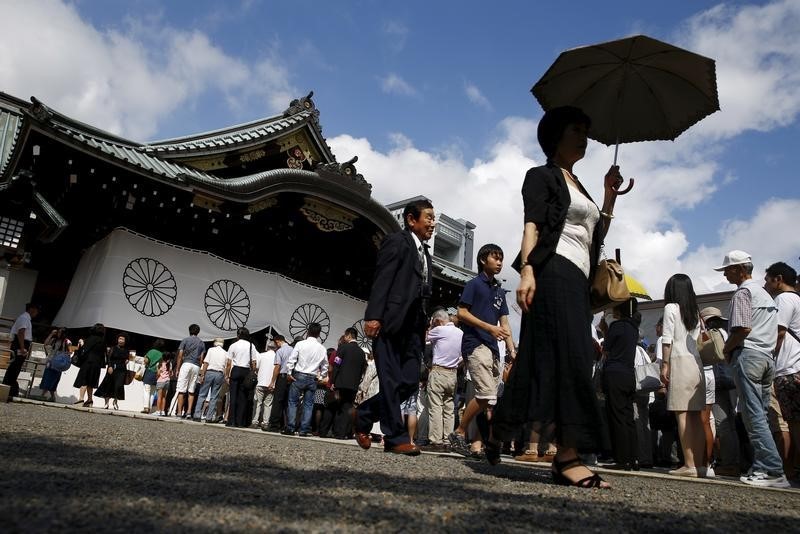TOKYO (Reuters) - Japanese Prime Minister Shinzo Abe sent a ritual offering on Saturday to mark the annual autumn festival at Tokyo's Yasukuni Shrine for war dead, seen as a symbol of Japan's past militarism by many in Asia, Japanese media said.
The move comes as China and South Korea, who both have bitter memories of their neighbor's military past, and Japan are arranging a trilateral summit, the first leaders' meeting since May 2012.
Japanese media said the talks would be on Nov. 1 in Seoul.
Abe sent a "masakaki" ceremonial tree to the shrine, Kyodo News agency reported. By not visiting the shrine in person Abe appears to be hoping to avoid derailing the thaw in ties, while also giving a nod to his conservative base.
A December 2013 visit by Abe to Yasukuni angered China and South Korea, where memories of Japan's occupation and colonialism before and during World War Two persist.
Recently both Beijing and Seoul have signaled a desire for improved relations with their neighbor.
On Thursday, Japanese media said Abe invited Chinese President Xi Jinping to visit Japan around spring next year, via a letter delivered by the head of the junior party in Japan's ruling coalition.
Sino-Japanese ties, plagued by their wartime past and concerns over Tokyo's bolder security stance and Beijing's increasing military assertiveness, have thawed a little since Abe has met Xi twice since November 2014.
But Abe has not had a one-on-one summit with South Korean President Geun-hye since taking office in December 2012.
Park said on Thursday that she hoped the three-way summit would help clear obstacles to better relations with Tokyo and boost stability in Northeast Asia and said she was open to a bilateral meeting with Abe.
But she stressed the importance of progress on the issue of "comfort women", as those forced to work in Japan's wartime military brothels are euphemistically known in Japan.

South Korea says Japan has not done enough to atone for the suffering of the women, many Korean, despite a 1993 apology by Tokyo.